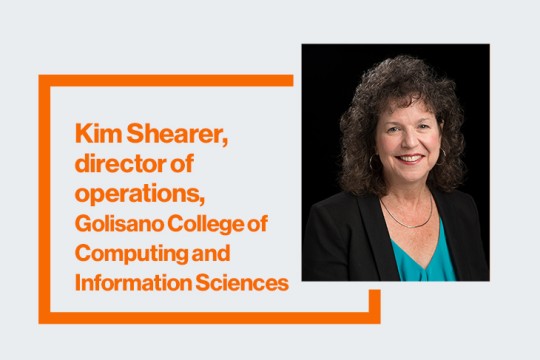Second Master’s or PhD? – A Comparison
Published 16 October, 2023
There are many reasons to pursue a second master’s degree or PhD, and the decision ultimately depends on your goals and interests. If you’re looking to further your academic career and research opportunities, a PhD may be the best option. However, if you want to gain additional skills and knowledge in a specific field, another master’s degree may be more beneficial.

Introduction
When it comes to choosing between a second master’s degree or PhD, there are many factors to consider. Your career goals and interests will play a large role in determining which path is right for you.
The end of a degree’s body is often filled with stress and uncertainty. Some students may take time off to explore other options, such as starting their career or continuing Education; but for those who want more structure in the final months before graduating – there’s no need to worry! There are plenty of options available.
The decision to do an additional degree often comes down between a second master’s and PhD. There are many factors that should be considered when making this choice, such as cost and duration for each type of program available in your country or whether you’re looking into getting specific career opportunities upon graduation from either one.
This article will provide a brief overview of each type of degree, its benefits and drawbacks, as well as some common questions that students ask about these programs.
What Is Second Master’s?
A second master’s degree is an academic degree earned after the completion of a bachelor’s degree and first master’s degree. Students who pursue a second master’s degree often do so to gain additional skills and knowledge in a specific field or to change careers.
Like the first, a second master’s degree generally takes two years of full-time study to complete. However, some programs may allow students to complete their degree in a shorter amount of time by enrolling in accelerated courses or by transferring credits from their first master’s degree.
Students who pursue a second master’s degree will typically take a mix of core and elective courses. Core courses generally focus on advanced topics in the field, while elective courses allow students to explore other areas of interest.
What Is a PhD?
A PhD, or Doctor of Philosophy, is the highest level of academic degree earned after completing a bachelor’s and master’s degree. Students who pursue a PhD do so with the goal of furthering their academic career or research opportunities.
A PhD generally takes 5-7 years of full-time study to complete. Students must also complete a dissertation, which is a research project that demonstrates their knowledge and expertise in the field.
Major Difference Between Second Master’s & PhD
level of specialisation, second masters.
Second Master’s degrees are great if you want to learn more about a specific subject or expand your knowledge of different topics. For example, an MSc allows the student to specialise in their desired field while still learning various subjects that will be beneficial for them down the road and can assist with any future careers they may have considered trying out! PhDs offer unlimited opportunity due its breadth across all disciplines; however this does come at higher tuition fees than other types of Masters Programmes do which some people might not afford, or feel comfortable with taking on.
A PhD is the highest level of academic degree you can earn. It requires a lot of hard work and dedication, but it also gives you the chance to specialize in your field of interest. You’ll be able to conduct research and contribute new knowledge to the field. Unlike Second Master’s degrees, PhDs offer the chance to teach at the collegiate level and beyond.
2. Duration of Program
The duration of a Second Master’s degree program can vary depending on the country you study in and the type of institution. In the United States, for example, most programs take two years of full-time study to complete.
The duration of a PhD program can also vary depending on the country you study in and the type of institution. In the United States, for example, most programs take five to seven years of full-time study to complete.
3. Curriculum
The curriculum for a Second Master’s degree can vary depending on the country you study in and the type of institution. In the United States, for example, most programs require coursework in research methods, statistics, and writing. Students also complete a thesis or capstone project.
The curriculum for a PhD can vary depending on the country you study in and the type of institution. In the United States, for example, most programs require coursework in research methods, statistics, and writing. Students also complete a dissertation, which is a research project that contributes new knowledge to the field.
4. Cost of Degree
The cost of a Second Master’s degree can vary depending on the country you study in and the type of institution. The average annual cost for the Second master’s is £8,860 (Home/EU), and £17,493 (International).
Similarly, the cost of a PhD can vary depending on the country you study in and the type of institution. On average, the annual cost for PhD is £4,407 (Home/EU), £19,600 (International) and full programme average cost is £17,628 (Home/EU), £78,400 (International).
5. Job Opportunities
Second Master’s degrees can lead to a variety of different job opportunities. Many students use their degrees to change careers or advance in their current field. Others use their degree to enter into a new field or start their own business.
A PhD can open up many doors, both in terms of job opportunities and research opportunities. Graduates can pursue careers in academia, government, or industry. They can also use their degree to further their education and career goals.
Advantages and Disadvantages: Second Master’s & PhD
So, these are some of the advantages and disadvantages of a Second Master’s degree and a PhD. Deciding whether or not to pursue one of these degrees depends on your specific goals and circumstances. If you’re considering either degree, be sure to weigh the pros and cons carefully to make the best decision for you.
Stuck During Your Dissertation
Our top dissertation writing experts are waiting 24/7 to assist you with your university project,from critical literature reviews to a complete PhD dissertation.

Other Related Guides
- Research Project Questions
- Types of Validity in Research – Explained With Examples
- Schizophrenia Sample Research Paper
- Quantitative Research Methods – Definitive Guide
- Research Paper On Homelessness For College Students
- How to Study for Biology Final Examination
- Textual Analysis in Research / Methods of Analyzing Text
A Guide to Start Research Process – Introduction, Procedure and Tips
Research findings – objectives , importance and techniques.
- Topic Sentences in Research Paper – Meaning, Parts, Importance, Procedure and Techniques

Recent Research Guides for 2023

Get 15% off your first order with My Research Topics
Connect with a professional writer within minutes by placing your first order. No matter the subject, difficulty, academic level or document type, our writers have the skills to complete it.

My Research Topics is provides assistance since 2004 to Research Students Globally. We help PhD, Psyd, MD, Mphil, Undergrad, High school, College, Masters students to compete their research paper & Dissertations. Our Step by step mentorship helps students to understand the research paper making process.
Research Topics & Ideas
- Sociological Research Paper Topics & Ideas For Students 2023
- Nurses Research Paper Topics & Ideas 2023
- Nursing Capstone Project Research Topics & Ideas 2023
- Unique Research Paper Topics & Ideas For Students 2023
- Teaching Research Paper Topics & Ideas 2023
- Literary Research Paper Topics & Ideas 2023
- Nursing Ethics Research Topics & Ideas 2023
Research Guide
Disclaimer: The Reference papers provided by the Myresearchtopics.com serve as model and sample papers for students and are not to be submitted as it is. These papers are intended to be used for reference and research purposes only.

Tips for Online Students , Tips for Students
Master’s vs PhD — These are the Main Differences
Updated: July 18, 2022
Published: October 31, 2019

The consideration between earning a master’s vs PhD is not always an easy choice. While many careers and personal aspirations may be complete with just an undergraduate degree (Associate’s or Bachelor’s), a lot of people continue their higher education to obtain graduate degrees. These include a master’s and/or a PhD.
Neither a master’s degree nor a PhD is considered to be a walk in the park. Therefore, it’s useful to understand why you would earn either and then decide how far to go.

Photo by Good Free Photos on Unsplash
Definitions: master’s vs phd.
Bost a master’s and PhD are defined as postgraduate degrees, but they require different commitments and styles of learning.
1. Master’s Degree:
Mostly all master’s degrees will require the completion of an undergraduate bachelor’s degree to enroll. They generally all share the same common requirement for a thesis or dissertation to graduate.
Earning a master’s degree through a taught program will result in the completion of a Master of Art (MA), Master of Science (MS), or Master of Philosophy (MPhil). For those who earn their master’s degree through research, they will earn a Master of Research (Mre), in a tailored field of study. There are also degree-specific master’s programs like Master of Business Administration (MBA) and Master of Education (M.Ed).
After earning a master’s degree, the next step is a PhD, which entails both working and performing research at an institution. A PhD is an abbreviation for “Doctor of Philosophy.” It is the highest academic degree one can achieve. As such, it is a time-consuming pursuit that requires a lot of studying and research.
You may be wondering, “Do you need a master’s to get a PhD?”
Technically, the answer is not always. Some students skip a master’s and go straight for their PhD, but they may lack research experience. While it could save money, the transition between a bachelor’s and a PhD is incredibly sharp. It may be harder to complete a PhD without the experience from a master’s.
Yet, some institutions may allow for the possibility to earn both your master’s and PhD in conjunction with one another. This will alleviate the transition between skipping a master’s and going straight to earning a PhD.
Should You Get a Master’s or PhD?
There are many considerations to factor when deciding between a master’s of PhD. For starters, it’s useful to consider the amount of time it will take, the cost, and the benefits and disadvantages of each. It is also of utmost importance to explore your own personal goals and reasons for wanting a graduate degree.
If your desired career of choice requires a PhD, like becoming a university professor, then you have your answer. If you want to start a business and benefit by networking while in school, a Master of Business Administration (MBA) could be a good idea. Consider what you want to pursue as a career and find out the requirements first.
Another useful thing to note is that a master’s degree can be used for a shift in careers. For example, if you attended college and earned a bachelor’s degree in humanities, but now you want to pursue science, you can still earn your master’s degree in a scientific discipline. On the other hand, a PhD is tailored to your field of study and specialty, so it will require that you are sure of your direction when you first earn your master’s degree.
Length of Time
A typical master’s degree program takes about two years full-time. However, there are accelerated programs that can be completed in just a year or so.
A PhD, in general, requires five to six years of studying, teaching, and research. However, it may even take some students up to eight or nine years to graduate. With this significant investment in time, it’s necessary to know if a PhD is right for you before starting.
The cost of both programs varies by institution and enrollment status of part-time versus full-time. However, since a PhD takes longer to complete, it will end up costing more. With that said, if you look into your return on investment, a PhD could end up yielding a higher salary, and therefore end up “costing less.”
Additionally, there is also the possibility of being paid to complete your PhD. Some students may receive an academic stipend, a university fellowship or apprenticeship or a reduced fee to earn their PhD while completing research (or teaching) at an institution. It’s also possible to get financial aid through a scholarship or grant.
As tuition rates continue to rise, it’s useful to look into alternative institutions for affordable education. For example, the University of the People offers a tuition-free master’s program in Business Administration and Education. This means you can study 100% online and graduate for less than the cost of most programs.
Weighing the Benefits
When comparing the two degree types, here are some benefits of each:
- Career-oriented
- Can open the door for more job opportunities
- Costs less than a PhD
- Takes less time than a PhD
- Helps you stand out from those with only an undergraduate degree
- You can perform research in your field of choice
- You become an expert in your field
- The prefix Dr. is added to your name
- You can teach in academia at the highest level
Required Commitment and Reasons to Pursue
Both a master’s and a PhD require a huge amount of hard work and utter commitment. You must be dedicated and motivated to complete either degree. Since most careers only may require a bachelor’s degree, having a master’s or PhD will set you apart from the competition. However, this should not be the sole reason to pursue either.
You may be wondering why would you earn either degree. Here’s a look at some motivational factors:
Reasons to Study for a Master’s
- Your career requires it (see next section)
- You want to advance your subject knowledge
- You want to experience graduate school and network with peers
Reasons to Study for a PhD
- You want to contribute new research to your field of choice
- Your career requires a PhD
- You want to earn the title of Dr.

Photo by Online Marketing on Unsplash
Required degrees by career.
Most people are motivated to pursue higher education because their desired careers require they do so. Here, we will break down those fields that require the completion of a master’s degree as it’s high on the list of reasons why to get one.
- Education Administration: To work as an administrator in an educational institution, you need to hold an advanced degree. A Master’s in Education (M.Ed) will provide you with the necessary knowledge and required skills to succeed in the field.
- Executive Level Business: A Master’s in Business (MBA) will not only place you ahead of the competition to land high-level positions in the field of business, but it can also be the jumping off point for becoming your own boss.
- Environmental Science: With issues in climate change and technological advancement, careers in Environmental Science are growing. As with most scientific careers, it requires a master’s degree where you will learn Applied Ecology, Environmental Policy, Environmental Chemistry, and more.
- Mental Health: To become a licensed practitioner and assist in mental health counseling, you will continue your education through a master’s degree in the field.
- Physical Therapy: Employers of physical therapists often prefer them to obtain a master’s degree in the discipline as the field is highly specialized.
Of course, some careers require a PhD. These careers are easy to spot because they have the prefix Dr. in front of them or the suffix like J.D. (Juris Doctor). To become a lawyer, doctor of medicine, veterinary medicine or psychologist/psychiatrist, you must obtain a PhD in the respective field.
Salary Differences Between Master’s and Ph.D. Graduates
According to a study performed by the Georgetown University Center on Education and the Workforce , the overall evidence shows that the higher the degree you have, the higher your salary potential. However, the differences vary by subject level and field.
In general, the expected lifetime earnings of those with each degree level is as follows:
- High School Diploma: $973,000
- Bachelor’s Degree: $1.3 million
- Master’s Degree: $2.7 million
- Doctorate Degree: $3.3 million
The Bottom Line
Aside from the financial cost and length of time, the opportunity to earn a master’s and a doctorate degree can offer several benefits.
However, it is an undertaking that requires a lot of dedication and motivation on behalf of the student. As such, it’s important to perform research on your desired career’s requirements, as well as your personal interest in pursuing either a Phd vs master’s.
Related Articles
What Comes After a Master's Degree?
Know Your Graduate School Options Beyond a Master's
- Choosing a Graduate Program
- Tips & Advice
- Admissions Essays
- Recommendation Letters
- Medical School Admissions
- Homework Help
- Private School
- College Admissions
- College Life
- Business School
- Distance Learning
- Ph.D., Developmental Psychology, Fordham University
- M.A., Developmental Psychology, Fordham University
After receiving your master's degree, there are still more options to study in graduate school, including an additional master's degree, doctorate programs (Ph.D., Ed.D., and others) and certificate programs to consider. These degree and certificate programs all vary in level, time to complete, and more.
Additional Master's Degrees
If you have already earned a master's degree and wish to continue your studies, you might consider a second master's degree. Since master's degrees tend to be specialized degrees, as you grow within your career you may find that a new specialty is required or that two specialties will make you an even more desirable candidate when job hunting. In education, for example, many teachers earn a Master's of Arts in Teaching degree but may return to the classroom to study for a degree in the field in which they are teaching, such as English or mathematics. They may also wish to pursue a degree in organizational leadership, especially if they are looking to grow into an administrative role in the school.
Master's degrees generally take two, sometimes three, years to complete (after earning a bachelor's degree), but pursuing a second degree in a similar discipline might allow you to carry over some credits and complete the program sooner. There are also some accelerated master's programs that can earn you a degree in less than a year; just be prepared for a lot of hard work. All master's programs entail coursework and exams , and, depending on the field, possibly an internship or other applied experience (for example, in some fields of psychology ). Whether a thesis is required to obtain a master's degree depends on the program. Some programs require a written thesis; others offer an option between a thesis and a comprehensive exam . Some programs provide capstone courses, which are usually semester-long courses that provide a comprehensive overview of everything learned within the program and ask students to complete several small thesis statements to demonstrate mastery.
A meaningful way in which master's programs differ from many, but not all, doctoral programs is in the level of financial aid available to students. Most programs do not offer as much assistance to master's students as they do for doctoral students, and so students often pay most if not all of their tuition. Many top institutions even offer full scholarships for doctoral students, but a doctoral program is usually a much more comprehensive and time-consuming educational program, requiring a full-time commitment, versus the possibility of working your full-time job while going for a master's degree.
The value of the master's degree varies by field. In some areas such as business, a master's is the unstated norm and necessary for advancement. Other fields do not require advanced degrees for career advancement. In some cases, a master's degree may hold advantages over a doctoral degree. For example, a master's degree in social work (MSW) may be more cost-effective than a doctoral degree, given the time and funds required to earn the degree and the pay differential. The admission offices at the schools you're applying to can often help you determine which program is best for you.
Ph.D. and Other Doctoral Degrees
A doctoral degree is a more advanced degree and takes more time (often a great deal more time). Depending on the program, a Ph.D. could take four to eight years to complete. Typically, a Ph.D. in North American programs entails two to three years of coursework and a dissertation — an independent research project designed to uncover new knowledge in your field that must be of publishable quality. A dissertation can take a year or more to complete, with most averaging about 18 months. Some fields, like applied psychology, may also require an internship of one year or more.
Most doctorate programs offer various forms of financial aid , from assistantships to scholarships to loans. The availability and types of support vary by discipline (e.g., those in which faculty conduct research sponsored by large grants are more likely to hire students in exchange for tuition) and by the institution. Students in some doctoral programs also earn master's degrees along the way.
Certificate Programs
Certificates can usually be earned in less than a year and are often significantly less expensive than going after additional degrees. If you're wondering what should come after your master's degree and you're not sure if a doctoral program is right for you, this could be the way to go. Certificates range in scope greatly and can allow you to hyperfocus on the areas in which you wish to excel. Some schools even offer certificate programs that are of a masters degree caliber, so you can walk away better prepared for your career and without breaking the bank. Employers who offer tuition assistance may look favorably on a less expensive certificate program as well.
Which Is the Best?
There is no easy answer. It depends on your interests, field, motivation, and career goals. Read more about your field and consult faculty advisers to learn more about which option best fits your career goals. Some final considerations are as follows:
- What types of jobs do a master's degree, doctoral degree, and certificate holders have? Do they differ? How?
- How much will each degree cost? How much will you earn after obtaining each degree? Is the outcome worth the cost? What can you afford?
- How much time do you have to invest in additional schooling?
- Are you interested enough to pursue many years of schooling?
- Will earning a doctoral degree offer a substantial benefit in your employment and advancement opportunities?
Only you know which is the right degree for you. Take your time and ask questions, then carefully weigh what you learn about each, its opportunities, as well as your own needs, interests, and competencies. What comes after a master's degree is up to you.
- A Note About Masters and Doctoral Comprehensive Exams
- Pros and Cons of Earning a Master's Degree Before a PhD
- How to Earn a Doctorate Degree Online
- What Does It Take to Earn a Master's Degree?
- A Doctor of Philosophy or Doctorate
- Business Administration Education and Careers
- Should I Earn a Human Resources Degree?
- Should I Earn a Management Degree?
- Should I Earn an Entrepreneurship Degree?
- Should I Earn an Operations Management Degree?
- Should I Earn a Project Management Degree?
- Should I Earn a Doctorate Degree?
- Should I Earn a Real Estate Degree?
- Types of Nursing Programs and Degrees
- Degree Requirements for Therapists
- Abbreviations and Titles All College Students Should Know

- Masters vs PhD – Differences Explained
- Types of Doctorates
The decision of whether or not to pursue a Masters or PhD (or both) after you complete your undergraduate studies is not necessarily a straightforward one. Both are postgraduate degrees but are different in terms of the academic experience and the career paths taken afterwards.
In short, a Masters degree involves a year of study, primarily through taught lectures and a final dissertation research project, whilst a PhD (also referred to as a doctorate degree) is a three-year commitment of independent research on a specific subject.
There’s more to it than that, however – read on for more information.
What Is a Masters Degree?
A Masters degree is the next level of education after the completion of an undergraduate degree, commonly known as a Bachelors.
These degree levels are often referred to in terms of cycles so that a Bachelor’s is a first-cycle degree, a Masters is a second-cycle and finally, a PhD is the third-cycle of higher education (and the highest).
Masters degrees demand an intense period of study, usually centred around a core series of lectures and taught modules, coupled with coursework assignments and exams, followed by the completion of a contained research project usually taking students 3-4 months to complete.
These types of degrees are attractive to recent graduates who want to delve deeper into their specific field of study, gaining some research experience and more specialised knowledge beyond what an undergraduate degree can offer.
Equally, some pursue a Masters degree program in a subject that is only tangentially related to their Bachelors degree, helping them gain a broader depth of knowledge.
These degrees also serve as a significant stepping stone for those already in employment who want to progress their current career development and earn a higher salary. They can also be an excellent method for helping in changing careers completely by learning new skills and subject knowledge.
What Is a PhD Degree?
A Doctor of Philosophy (PhD) is the highest academic degree that can be awarded and is the third and final cycle in the progression of higher education.
A doctoral degree is earned on the basis of producing a significant, independent and novel body of work (a Thesis) that contributes new knowledge to a particular research topic.
These are research degrees that are a significant investment of a candidate’s time, resources and energy and are all but a pre-requisite for anyone considering a career in academia, such as eventually becoming a professor.
There are some exceptions to this, such as those with a medical background who may earn an MD (Doctor of Medicine), which is the equivalent of a PhD.
Doctoral degrees can also have a significant positive impact on career development outside of academia, especially in fields such as engineering, business and finance that have a high demand for highly qualified and capable people.
A graduate student engaged in PhD study is commonly known as a PhD student, PhD candidate or doctoral student.
What are the Benefits of a Masters Degree?
There are several reasons one might consider doing a Masters degree rather than a PhD in their graduate education. These include:
- It takes approximately a third of the time to do compared to a doctorate degree and costs less too.
- It’s a good way to differentiate yourself from those that hold only an undergraduate degree without having to commit to a substantial research degree.
- The end goal is more career-focused as opposed to research-focused. For example, it is practically an ‘easier’ route to changing or progressing your career if that aligns with your professional goals.
What are the Benefits of Doing a PhD?
You may continue on into a doctoral program after a Masters or you may even dive straight in after completing your undergraduate studies. So, what are the advantages of completing this third-cycle?
- You’ll have developed a wealth of transferable skills at graduate school, such as effective communication of complex concepts, multi-tasking time-management and the ability to adapt to and solve unexpected problems.
- A doctorate helps to establish you as an expert within your chosen subject area; your work will hopefully have furthered the knowledge in this.
- It will open up career paths and teaching positions within academia that may otherwise be very difficult to get a hold in (although these career paths will still be very competitive).
- You can add the title ‘Dr’ in front of your name!
Which Degree Is More Impactful: A Masters or a PhD?
On paper, the answer should be clear: A doctorate degree is the highest degree you can earn, so has more impact than a Masters, which in turn has more impact than a Bachelors.
The reality is that the size of the impact (if any) really depends on the subject area and the career path you choose (if the measure of impact is how it positively improves your career prospects, that is).
For someone with aspirations of becoming a professor, a PhD will be of greater value than a Masters alone.
Equally, it’s also possible that someone with a PhD entering a different field or one that doesn’t require a PhD may find that their degree has no bearing on their career or in some cases may even be seen as a ‘negative’ with a concern of the person being ‘over-qualified’ for a position. There are many scenarios in which professional experience would be more valuable to an employer than a doctorate degree.
Check out the links below to our interviews with Prof. Debby Cotton and Dr Nikolay Nikolov to read their experiences of when a going through a PhD program has had a clear benefit (Prof. Cotton) and when it hasn’t been helpful (Dr Nikolov).

Do You Need to Have a Masters to do a PhD?
This really depends on the university, department and sometimes even the project and supervisor.
From a purely application process perspective, some institutions may formally require you to hold a Masters degree relevant to the subject of the PhD project before you can enter their doctoral program.
In another scenario, most universities are unlikely to accept candidates that were awarded below a 2:1 (in the UK) in their undergraduate degree but may consider someone who has ‘made up’ for this with a high-grade Masters.
Lastly, some universities now offer PhD programmes that incorporate an additional year of study in which you would complete a Masters degree before carrying directly on into a PhD project. As you’d expect, even if a university doesn’t formally require you to hold one, a Masters degree can help separate you from other applicants in being accepted on the project.
Check out our detailed guide to doing a PhD without a Master’s .
Why Do a Masters before Your PhD?
Even if you don’t need to have one, it could still be beneficial to begin your postgraduate study by doing a Masters first before you embark on your doctorate journey.
As mentioned previously it’ll help you stand out from applicants that don’t have one, but beyond that, it’ll give you a taster of what research life could be like, especially if you stay at the same university and department for your PhD.
The one-year commitment (in the UK at least) of carrying out a Masters first, and in particular your research project, will help you better understand if this is truly something you want to commit the next three or more years to.
You’ll learn some of the skills of independent research, from performing detailed literature searches to more complex, analytical writing.
At the end of it, you should be in a stronger position to consider your options and decide about whether to continue into a PhD at graduate school.
Finding a PhD has never been this easy – search for a PhD by keyword, location or academic area of interest.
How Long Does It Take to Get a Masters Degree?
In the UK, a full-time Masters degrees take students one calendar year to complete: The programme of study usually starts in September, the final research project the following April and final project viva around August. Part-time degrees are usually double the time.
How Long Does It Take to Get a PhD?
In the UK, most PhD projects take 3-4 years to complete , as reflected by the majority of funded projects offering stipends to cover living expenses of about 3.5 years.
For many reasons, projects may end up taking longer to complete, however. This might be because of difficulties in collecting enough data, or if the project is being done part-time.
Which One is More Expensive to Do?
As you’d expect, as a PhD takes three times as long to complete as a Masters degree, it will cost you more to do as far as university fees are concerned.
Another thing to consider is that many PhD projects come with some level of funding equivalent to a low salary, which may cover the cost of tuition fees and living expenses, whilst it is usually more difficult to obtain funding for Masters study.
Conversely, a Masters graduate may progress into a higher (versus PhD funding) salary sooner whilst a PhD student will endure three years of a comparatively low income.
A Masters vs a PhD: Conclusion
If you’re considering continue further graduate study after your undergraduate degree, the question of doing a Masters vs a PhD is likely to come up. They are both considered an advanced degree, each with their own advantages.
There are benefits to doing either of these graduate programs or even both of them; your decision here can be easier if you have an idea of the career you want to follow or if you know you have a love for research!
Browse PhDs Now
Join thousands of students.
Join thousands of other students and stay up to date with the latest PhD programmes, funding opportunities and advice.
Want to Get your Dissertation Accepted?
Discover how we've helped doctoral students complete their dissertations and advance their academic careers!
Join 200+ Graduated Students

Get Your Dissertation Accepted On Your Next Submission
Get customized coaching for:.
- Crafting your proposal,
- Collecting and analyzing your data, or
- Preparing your defense.
Trapped in dissertation revisions?
Double doctorate: can you get multiple phds, published by steve tippins on may 12, 2020 may 12, 2020.
Last Updated on: 2nd February 2024, 02:48 am
A question I’ve gotten a few times: “Can I get a double PhD?”
The answer is yes, you can under most circumstances. But why?
While there are some exceptional cases, generally I’d discourage people from pursuing a second PhD. Here are some of the reasons why. After I cover those, I’ll talk about situations where it makes sense to get multiple PhDs.
Reasons Not to Get a Double PhD
For the most part, I can’t see a big reason for a second PhD unless there is a second academic track you want to go into. Here are some reasons why getting a double PhD won’t actually double your opportunities.
You Are Already Considered an Expert
Once you have a PhD , few people outside of academia will ask you what it’s in. Outside the academic world, multiple PhDs will rarely give you much extra credibility.
Becoming a Student Again Is Tough

Getting a PhD means you’re very subservient to professors and committee members. Once you’ve emerged from that already and have become an expert, it’s very difficult to get back into that mindset. Doing so requires a lot of self-discipline and humility–sometimes even when it’s unwarranted. While possible, I wouldn’t say it’s desirable.
You Can Do Interdisciplinary Research Already
You probably wouldn’t need a PhD in both Anthropology and Psychology or in both Sociology and Psychology. Those fields are closely related, so an anthropologist can offer valuable insights to the field of psychology, and vice versa. Just make sure to stay within the scope of your knowledge or collaborate with researchers in the other field you’re exploring.
Over 50% of doctoral candidates don’t finish their dissertations.
You Already Have Research Skills
A PhD gives you the research skills, and those can transfer to other areas. If you have all those skills, you can get a lot of the information on your own and become an expert in another field. You know how to research and dive in and find people who can help you find other information, so if you need to know about a subject, you have the resources to do it on your own. You already have research skills. Why pay to learn them again?
A note of caution here: people have been getting in trouble for using “PhD” after their name and commenting on things that they’re not experts on. For example, someone with a PhD in classical literature commenting on current societal issues or health issues and not disclosing that their PhD is in an unrelated field.
If you want to be seen as an expert in a field, you’ll need to have a PhD (or other degree or certification) in that field.
Objectively speaking, the PhD research skills apply across the board. And it may be that through self-study or mentorship, you are an expert in a field unrelated to your degree. However, if you’re putting yourself out there as an expert in another field, you can still say you’re an expert, just don’t put “PhD” after your name (or be clear about what your PhD is in).
You May Be Seen as a “Permanent Student”

If you haven’t had much of a career after your first PhD, you may be seen as a permanent student. As David Clark pointed out on Stack Exchange , “Hovering around getting multiple PhDs would be akin to getting multiple bachelor degrees. People may see you as a permanent student, not someone growing into a mature researcher.”
While there are many advantages to being a permanent student–a life of learning and curiosity being one of them–some hiring managers may consider it a drawback, as they’re looking for someone invested in their career.
Reasons to Get a Double PhD
All that said, there are some situations where getting multiple PhDs may be the best choice. I’ve outlined some of these below.
Expertise in Hard Sciences

The most common instances of people having multiple PhDs are in the hard sciences. For example, medical students may also pursue a PhD in something like chemistry or physiology.
I’ve seen MDs with PhDs and JDs with PhDs. This can come in handy for those more interested in research or administrative work–for example, an MD who pursues a PhD in order to become eligible for an administrative-level position or pursue research.

Shifting Expertise
If you’re a biologist and would like to become a counselor or a mathematician, you’ll need a new degree. However, a PhD may not always be the best choice. Counselors, for example, can be certified with a Master’s degree (more on that in the next section).
That said, if you’re committed to research or high-level management positions in an entirely new field, it may be that there’s nothing to do but buckle down and get your second PhD.

Certifications with Similar Requirements

If you’re looking to get a certification, and the requirements for that certification are almost as much work as getting a PhD, it usually makes sense to go ahead and get the PhD.
For example, if you are an LMFT and want to get an AAMFT-Approved Supervisor designation, it’s usually worth just going ahead and getting the PhD, since the requirements for both are similarly stringent.
Another reason to go this route: you can get student loans to fund a PhD, but not to fund self-study.
How to Get a Double PhD
See if it’s necessary.
See if getting a Master’s or certification in that field will allow you to do what you want to do. For example, somebody who has a PhD in History who decides they want to be a financial planner. They could get a certified financial planner designation and then be fine. If they want to be a therapist, they just need a master’s degree in therapy.
See if You Can Get Credit from your Previous Program’s Courses

If you’re going into another field where you want to do research, you may get credit for the research courses you took in your previous program. However, there is usually a 5-10 year limit on this.
Pursue Two PhDs Simultaneously
In some cases, it is possible to complete similar coursework for multiple PhDs at the same time.
Christopher Wells pursued two related PhDs simultaneously. He says, “I have a double major doctoral degree that can be seen as two PhDs individually, in inorganic and physical chemistry, and pursued both of the majors at the same time during my nine years at SUNY Albany, from 2002 to 2011. However, my diploma only shows ‘Chemistry’, so I usually tell people directly about the two majors.”
Double PhD Summary
While in most situations getting multiple PhDs is unnecessary, there are some cases where it makes sense. If you’re in one of those situations, look into whether you can get credit for work you’ve already done.
Steve Tippins
Steve Tippins, PhD, has thrived in academia for over thirty years. He continues to love teaching in addition to coaching recent PhD graduates as well as students writing their dissertations. Learn more about his dissertation coaching and career coaching services. Book a Free Consultation with Steve Tippins
Related Posts

Academic Career
Bipoc academics matter: diversity in academia is long overdue.
We at Beyond PhD Coaching firmly believe that diversifying academia is both necessary and important – and well past overdue. There’s no denying that higher education equals more power in society. This power has been Read more…

Academic Arrogance: Dismantling a Culture of Harm
Academics are like polar bears. We live alone; we hibernate. If you walk down the halls of academic offices, you’ll find that almost all of the doors are shut. We live a solitary existence, occasionally Read more…

How to Be a Good PhD Student
If you’re curious about how to be a good PhD student, this article is a good place to start. As a professor for over 30 years, much of that as a Dissertation Committee Chair, I’ve Read more…
Enter a Search Term
Should you get a second master’s degree.
If you already have a graduate degree, you know how many advantages and opportunities exist as a direct result of your master’s degree. But later in life, if you choose to specialize in your field or you want to alter the trajectory of your career altogether, you might not know that a second master’s degree can also provide tremendous advantages. In fact, a second master’s degree—even if in another field entirely—can afford you greater professional opportunities, hold you in higher regard among colleagues and essentially place you in the highest academic echelon, no matter where you go in life.
Can You Get Two Master’s Degrees?
It's entirely possible to earn two master’s degrees and there are many reasons to do so. Two master’s degrees can help you to pursue more than one academic field, qualify for a position with more responsibility and opportunities and help you to become a top candidate for higher paying jobs.
What is a Dual/Double Master’s Degree?
A dual degree, also known as a double master’s degree, enables a graduate student to pursue two master’s degrees at the same time. The two degrees may be in complimentary fields, allowing students to achieve two degrees in less time than they would have taken had they earned them individually. A dual degree is not the same as a double major—for example, receiving a single master's degree in biology and chemistry—but it entails earning two distinct degrees at the same time.
Students who are pursuing a dual or double master’s degree may find that there are several drawbacks that make this less attractive than earning a second master’s degree. Dual/double master’s degrees require a student to split their attention. It doesn’t facilitate the immersive and rewarding experience that one gets with a first master’s degree and then, later on in life, a second master’s degree. Since any master’s degree provides a level of confidence as well as the educational benefit, it could be said that dual/double master’s degrees are not as beneficial, at least in that regard. Therefore, most students opt for a single master’s degree first; then, if they so choose later on, they go for a second master’s degree.
Benefits of a Second Master’s Degree at Monroe College
There are many things that stand out as benefits to pursuing a second master’s degree online at Monroe College. The first is that it can actually be done online. As second master’s degree students are adults with full lives, this is a huge benefit that enables the student to study from anywhere, including abroad.
The second biggest benefit is the discount financing that Monroe College offers students pursuing a second master’s degree online. Financial discounts are always attractive, but especially so for adult students already managing things like childcare payments, mortgages, car loans, etc. This is a special discount that is available for online students at Monroe College.
Master’s Degree vs. PhD
When students reach the conclusion of their master’s program, they often ponder whether they should continue their education with another master’s degree or pursue a PhD. Despite the fact that both master's and doctoral degrees are considered graduate studies, there are substantial distinctions between the two.
Research vs. Skill Development
Master's degrees are essentially interdisciplinary, combining material and teaching approaches from various fields to guarantee that students get specialized skills and tools for a variety of future occupations.
PhDs, on the other hand, are intended to be self-contained research projects with little support from professors and departments with the goal of confirming the solution to a single issue.
Time Involved
While a master’s program typically consists of four semesters, with certain master’s degrees allowing students to finish their studies in as little as one year or 18 months, PhDs can take anywhere from three to five years to complete, depending on the subject and graduate institution.
Choices in Career Trajectory
Master's degrees are designed to impart general abilities, which are great if you want to keep your professional options open by pursuing a variety of positions. A master's in communication sciences, for example, can prepare you to work in fields ranging from journalism to public relations and sales.
With a PhD, your specialty narrows even further while your depth of knowledge expands dramatically. This is the road to take if you have a specific professional goal in mind, such as rising to the top of a company hierarchy, or if you want to freelance or start your own business.
Time Commitment and Flexibility
Another variation between master's and doctoral programs is the ability to work during the academic year. While there are part-time master's degree programs that provide courses in the late evening to allow working students to attend, PhDs are more like full-time jobs and are supported to compensate for the difficulties of mixing work and research. A PhD also entails continual research as well as other academic obligations such as teaching, conferences, publishing, and departmental organization.
MBA as Second Master’s Degree
Whether you wish to specialize in a managerial specialization, plan a career move or want to develop a hybrid skill set of technological and managerial abilities, the decision to pursue an MBA after an MS is based on a variety of factors. If you have a technical specialization in your MS and wish to improve your managerial abilities and enhance personal development, you could pursue an MBA following your MS. In either case, an MBA can help you advance your career and find better work possibilities as a multiple master’s degree holder.
International Second Master’s Degree
There are tremendous benefits of earning a second master’s degree as an international student. For starters, your educational degrees will be worth more to your future employers and to you in terms of career advancement, no matter where you choose to work in the world. You will also be permitted to remain in the U.S. for longer than if you only go for one master’s degree. Finally, you will simply have more options for your career path, which will provide you with more options in all areas of your life.
How to Finance Your Second Master’s Degree
If you want to get your second master's but are worried about the costs, a loan for your second master's might be the answer to your funding needs.
Stafford Loan Direct
The maximum amount that may be borrowed with a direct Stafford Loan is capped at an annual amount per person. As long as you don't go over the limit, you have the opportunity to get a loan for a second master's degree. Speak with your student loan servicer and see if you can have your loan increased, if necessary.
Perkins Loans
A Perkins loan may be available to pay for your second master’s degree. However, it is important to understand that there is a lifetime maximum per individual.
Personal Loan
A personal loan for a second master's degree is also a viable alternative. Unsecured personal loans are very common types of lending. This implies you won't have to give any kind of security. If you can no longer repay a loan, collateral is anything of value that will serve as payment (i.e., security).
Scholarship
Almost all colleges have a scholarship system in place to recognize and reward their most deserving students as well as those who need financial assistance. A related notion is the assistantship, in which you may be required to serve as a substitute instructor for undergrad students or as a lab assistant in order to receive a partial remission of the master's degree tuition costs.
The GI Bill is a set of benefit programs meant to assist veterans and active-duty military personnel in obtaining an education. The program also assists certain veterans' family members in obtaining financial assistance for their education or professional training.
To use the GI Bill benefit for your schooling, you must first determine your eligibility. Veterans must first get a GI Bill Statement of Benefits which will specify the amount of money they are eligible to receive for their schooling. Many students discover that the GI Bill covers the majority, if not all, of their school costs, as well as providing them with a large housing and book allowance.
Should You Pursue a Second Master’s Degree?
Online dual master's degree programs provide a unique opportunity to pursue your academic studies in advanced disciplines while also broadening your professional alternatives in a short amount of time. Enrollees who pursue a double master's degree online might achieve two degrees in less time.
When it comes to higher education, those with two master's degrees have more options. Admission to PhD programs is tough, with just a few individuals chosen among hundreds who apply. Because research work may overlap these areas, you will be a stronger contender if your master's degrees are in relevant topics.
Monroe College is a top choice graduate school for local and international students in pursuit of a second master’s degree. Interested in learning more about getting a first or second master’s degree at Monroe College? Talk with us and request more information or apply today !
Concurrent Master’s Degree in Another Discipline en route to the Ph.D.
Doctoral students enrolled at Duke University can pursue one master’s degree en route to the PhD, without paying for an additional 30 units of graduate credit. This includes master’s degrees in the same department as the PhD, or in a different department, as long as that department offers an admitting master's degree. Note that PhD students who wish to receive a second master's degree en route to the PhD will be charged tuition for the additional 30 course credits required. For those interested in pursuing a concurrent master’s in another discipline en route to the PhD, such degrees will only be awarded after their final doctoral term. Note that students who fail to complete their PhDs, but wish to receive the concurrent master’s in another discipline nonetheless, will be charged tuition for the master’s degree. There is a two-part application process.
Concurrent Master’s Application, Part 1:
- After successful completion of the preliminary examination, but prior to the start of the student's final PhD term, students download and complete the Graduate School’s fillable Intent to pursue a Concurrent Master’s Degree in another Discipline en route to PhD Form .
- This application of intent includes a rationale for the intellectual relationship between the two programs and two letters of recommendation from Duke faculty, one from each department supporting the relationship between the Doctoral and Master’s program for which the applicant is applying.
- The printed completed form, with the required, original approval signatures and all supporting documentation, must be submitted to The Graduate School for review by the Associate Dean of Academic Affairs.
- Students will receive notification of the review outcome from The Graduate School, and, if approved, the application of intent will be saved in the official student record for final review when students submit part two of the application in their graduating semester.
Concurrent Master’s Application, Part 2:
- In the semester in which students expect to graduate from the PhD program, they download and complete the Graduate School’s PDF fillable Concurrent Master’s Degree in another Discipline Application Form .
- A copy of a transcript highlighting the courses to be counted towards the master’s that equal to 30 credits must accompany the form.
- The printed completed form, with the required, original approval signatures and all supporting documentation, must be submitted to The Graduate School – Associate Dean of Academic Affairs for final review at least 30 days before the graduation deadline dates .
- Students will receive notification by email of final approval, and they must apply to graduate as master’s students as well as PhD students in their respective programs through the Apply to Graduate portal in Duke Hub.
Florida State University
FSU | The Graduate School
Main navigation Pulldown
The graduate school.
- Degrees and Programs
- Degree Programs
Dual Degree Programs
The way it works.

Dual degrees are two degrees earned simultaneously when a student is accepted by both department/programs and is approved by the appropriate academic deans and the Dean of The Graduate School.
A student must be admitted to one academic program initially, and after the first semester, may apply and be accepted to the second degree program. There is no formal relationship between the two degree program requirements in a dual degree situation.
*To ensure that students entering a second graduate degree program receive timely and effective advisement on a program of study approved by the second department, admission to the second graduate degree program must be approved before the student completes more than twelve credit hours of coursework that are counted in that department toward the second graduate degree. In special circumstances, students may petition their academic deans for an exception. This limit of twelve credits earned only applies to students admitted to their first graduate degree program in the Fall 2014 semester and onwards.
Note: There is no formal relationship, overlap of credit hours, or sharing of credit hours between the two degree program requirements in a dual degree situation. This form needs to be submitted at the correct time to ensure timely and effective advisement, prior to the graduate student completing 12 credit hours in the second degree program and before the student has reached the final semester and applied for graduation so there are no delays in graduation clearance.
Steps to Take and Required Materials
If a student is pursuing two degrees at once, or has graduated with one degree and is now pursuing a second degree for which coursework overlaps with the first, he/she will need to submit a Dual Enrollment Request Form.
The Dual Enrollment Request Form must be signed by the student and endorsed by the major professor, department chair/unit head and/or academic dean's office, as appropriate. The justification should explain why the pursuit of two degrees simultaneously is necessary and beneficial. The following materials should be attached to the Dual Enrollment Request Form:
- A copy of the student's transcript.
- A program of study from both programs showing the requirements needing to be met with an indication of coursework and other requirements already completed.
- A detailed timeline for completion of both degrees.
The completed form must be sent to the Dean of The Graduate School (or designee) for final approval. Once approved, the Office of the University Registrar will be notified of the dual registration.
Dual Enrollment Request Form
Download the Dual Enrollment Request Form By Clicking Here (PDF)
LET US HELP
Welcome to Capella
Select your program and we'll help guide you through important information as you prepare for the application process.
FIND YOUR PROGRAM
Connect with us
A team of dedicated enrollment counselors is standing by, ready to answer your questions and help you get started.

- Capella University Blog
Which psychology field is right for me?
May 15, 2024
Reading time: 4 minutes
Are you interested in using theory, analysis and evidence-based approaches to understand how people think, learn, develop and behave and to help them thrive? If you want to explore new ways to make a difference, the options for discovering your professional path in psychology may seem endless â and you may have found that you need advanced knowledge and skills to take the next step.
What skills can I develop with a psychology degree?
The specific skills that can be useful in the field of psychology will vary depending on the area of study you pursue and your degree level. Some of the broad skills that are important to develop include:
- Communication: Strong communication skills are an asset for helping individuals, groups or organizations, conveying research findings or working with colleagues.
- Ethical awareness: You may be required to handle sensitive information, which means respecting confidentiality.
- Analysis and critical thinking: When you conduct research or work with your stakeholders, you should be able to interpret data and understand how to apply what you know to different situations.
- Patience: Making progress toward specific goals takes time, whether itâs discussing solutions with a patient or conducting research on a study.
- Empathy and active listening: Understanding and recognizing the feelings of others starts with giving your full attention and knowing how to recognize verbal and nonverbal cues.
- Inclusivity: Recognizing the diverse perspectives of people and their communities and examining your own biases can help you adapt your approach to different needs.
Which area of psychology is right for me?
As you explore areas of psychology, these questions may help you figure out your interests:
- Who do you want to help?
- Are you more interested in clinical or applied areas of psychology?
- What issues do you want to focus on?
Your answers to these questions can help you find paths to explore, including degree options that could help you pursue your professional goals. You will need to conduct your own research to understand what opportunities may be available to you. Note that some professional paths may require you to have previous experience, licensure,* certifications or other designations along with a degree.
While Capella cannot guarantee that a graduate will secure any specific career outcome â such as a job title, promotion, salary increase or other career outcome â we encourage you to research requirements for your job target and career goals.
*It is important to understand all educational and individual requirements for licensing. Capella University cannot guarantee licensure, certification or endorsement. State regulations vary regarding professional licensure. It is your responsibility to understand and comply with requirements for your state.
What can you do with a psychology degree?
Based on where your interests lie, explore some fields of psychology and degree options offered by Capella.
Clinical psychology: Study human behavior and help people build wellness and emotional resilience.
- BS in Psychology Pre-Counseling & Therapy
- MS in Clinical Psychology
- PsyD in Clinical Psychology
Behavioral health: Treat populations in distress to improve emotional, social and mental health.
- BS in Psychology, Applied Behavior Analysis
- MS in Applied Behavioral Analysis
- PhD in Behavior Analysis
Developmental psychology: Promote positive development, social growth and emotional changes throughout all stages of life.
- MS in Psychology, Child & Adolescent Development
- PhD in Psychology, Developmental Psychology
Educational psychology: Study how people learn and retain knowledge.
- MS in Psychology, Educational Psychology
- PhD in Psychology, Educational Psychology
School psychology: Apply principles of educational and developmental psychology to meet behavior and educational needs in a learning environment.
- MS in School Psychology
- EdS in School Psychology
- PsyD in School Psychology
Industrial/organizational psychology: Support leaders and organizations through an understanding of human behavior to help create efficiencies and advance team performance.
- MS in Psychology, Industrial/Organizational Psychology
- PhD in Psychology, Industrial/Organizational Psychology
Learn more about Capellaâs bachelorâs, masterâs and doctoral psychology programs and graduate certificates.
You may also like

The difference between school counselors and school psychologists

How long does it take to become a psychologist?

What can you do with a bachelorâs in psychology?
Start learning today.
Get started on your journey now by connecting with an enrollment counselor. See how Capella may be a good fit for you, and start the application process.
Please Exit Private Browsing Mode
Your internet browser is in private browsing mode. Please turn off private browsing mode if you wish to use this site.
Are you sure you want to cancel?
RIT graduate pursues Ph.D. across time zones

Nastaran Nagshineh, center, defended her Ph.D. thesis at RIT in April. Faculty from RIT’s Rochester and Dubai campuses served on her thesis committee and include, from left to right, Kathleen Lamkin-Kennard, Steven Weinstein, Nathaniel Barlow, and David Kofke (a professor at the University at Buffalo). Mohamed Samaha participated remotely and appears on the video screen behind the group and alongside Nagshineh’s picture.
Nastaran Nagshineh is one of the first Ph.D. candidates to bridge RIT’s Rochester and Dubai campuses. Her accomplishment creates a path for future students at the university’s international campuses.
Nagshineh completed her Ph.D. in mathematical modeling while working full time as a mathematics lecturer at RIT Dubai in the United Arab Emirates, teaching as many as five classes a semester. She described her Ph.D. journey as “an exercise in perseverance” due to competing demands and long days. Rochester is eight hours behind Dubai, and the time difference meant many late-night classes and meetings.
“I saw this collaboration as an opportunity, rather than as a challenge, because my primary adviser, Dr. Steven Weinstein (RIT professor of chemical engineering), and my co-adviser, Dr. Mohamed Samaha (RIT Dubai associate professor of mechanical engineering), both have the same area of research interest,” she said. “They both worked toward my success.”
Nagshineh is one of 67 RIT Ph.D. students who defended their thesis this academic year and who will earn their doctorate. RIT awarded 63 Ph.D. degrees in 2023.
In 2020-2021, RIT’s Graduate School met and surpassed the university’s goal of conferring 50 Ph.D. degrees during an academic year. That number will continue to grow as students cycle through the seven new Ph.D. programs that RIT has added since 2017, said Diane Slusarski , dean of RIT’s Graduate School.
Meeting these goals puts RIT on a path toward achieving an “R1,” or research-intensive designation, from the Carnegie Classification of Institutions of Higher Learning. RIT is currently ranked as an R2 institution . Many factors go into changing a university’s status, including research investment and maintaining a three-year average of 70 Ph.D. degrees awarded per year, according to Slusarski.
“We have met the goals of the strategic plan, and now we look forward to contributing to the research innovation in the future,” Slusarski said. “We want to help the new programs thrive and win national research awards.”
RIT’s emphasis on high-level research is seen in Nagshineh’s Ph.D. work. She applies mathematical modeling to the field of fluid dynamics. Her research has been published in top-tier journals and has gained notice, said Weinstein, her thesis adviser.
Weinstein describes Nagshineh’s accomplishments as “a testament to a fantastic work ethic and commitment” and is inspirational to younger students at Rochester and Dubai.
“The collaboration between RIT Dubai/Rochester has continued,” he said. “Another paper was submitted a few weeks ago with Mohamed Samaha and Nate Barlow (RIT associate professor in the School of Mathematics and Statistics) as co-authors, as well as Cade Reinberger, a younger Ph.D. student in my research group.”
Mathematical modeling is one of RIT’s newer Ph.D. degree programs, and Nagshineh is among its earliest graduates. The program has doubled in size since it began accepting students in 2017, Slusarski said. This past fall, the mathematical modeling program had 35 students, with two graduating this year.
Altogether, RIT has 13 Ph.D. degree programs currently enrolling 438 students, with computing and information sciences accounting for the largest with 117 students. RIT’s other Ph.D. programs include astrophysical sciences and technology , biomedical and chemical engineering , business administration , color science , electrical and computer engineering, imaging science , mechanical and industrial engineering , microsystems engineering , and sustainability .
New programs in cognitive science and physics will launch in the fall.
The growth in RIT graduate education—with more than 3,000 master’s and doctoral students—reflects a demographic change in the student population, Slusarski said. “We have a higher percentage of women in the graduate programs than we have for RIT undergraduate programs.”
RIT’s graduate programs enroll 42 percent women, according to Christie Leone , assistant dean for the Graduate School.
Nagshineh, who also holds an MS in electrical engineering from RIT Dubai, welcomes her role as a mentor to other women students on both campuses.
“As a young woman in an Arabic country, the power of women is often underestimated and undervalued, and I hope to serve as a role model to female students, especially those that question their path,” Nagshineh said.
She plans to continue in her career as a professor and a researcher. “I would like to pursue a research program where I can advise my own students and teach them more deeply.”
Recommended News
May 20, 2024

Engineering Students Quit, But Retention Tactics Abound
The American Society of Mechanical Engineers talks to Risa Robinson, department head in the Department of Mechanical Engineering, about placing a focus on first-year retention strategies.

RIT’s ‘That Damn Goat’ comes to Nintendo Switch
May 17, 2024

Top Teacher: Minnetonka sign language teacher Dr. Tracy Ivy
KMSP-TV selects Tracy Ivy '09 (secondary education for students who are deaf or hard of hearing) as a Top Teacher.
May 16, 2024

Kim Shearer’s passion for planning spans five decades at RIT
Kim Shearer's journey at RIT, marked by strategic planning and dedication, led to pivotal roles in shaping the university's computing college, spearheading expansions, fostering diversity, and leaving behind unique touches like binary code lights and cryptic messages within the campus architecture.

QUICK LINKS
Degrees and programs powered by experience
Undergraduate

NEWS, DISCOVERY, AND ANALYSIS FROM AROUND THE WORLD

Explore our global campuses
Find unique opportunities for experience-powered learning and discovery.

Our hub for research and graduate education at the intersection of technology, security, and policy
Explore Arlington

Massachusetts
Established in 1898, our first campus is a comprehensive hub for learning, discovery, and urban engagement
Explore Boston

Home to world-class national security and defense research and a magnet for science-based startups
Explore Burlington

North Carolina
An engine for professional education in the life and health sciences
Explore Charlotte

Our hub in Europe, with undergraduate and postgraduate degrees—including a U.S./U.K. double degree—and world-leading network science research
Explore London

Graduate education and entrepreneurship programming to support the rapidly transforming finance and tech economies
Explore Miami

A vibrant center for coastal sustainability research and innovation
Explore Nahant

Our West Coast undergraduate campus offering unique entrepreneurship and social impact programming, and home to the Mills Institute
Explore Oakland

An engine for economic development with graduate degrees and research in technology, and home to the Roux Institute
Explore Portland

Graduate degrees and research focused on the region’s booming tech industry, and undergraduate summer programs
Explore Seattle
Graduate education for high-tech fields in the heart of California’s Big Tech region
Explore Silicon Valley

Preparing professionals to thrive in high-demand fields in North America’s third-largest tech market
Explore Toronto

Professional education aligned with British Columbia’s rising startup and high-tech ecosystem
Explore Vancouver

#LikeAHusky
Plenty of room to do your own thing. Many ways to feel like a Husky.

17 Division I teams, including varsity esports. 55 intramural sports, and 64 club teams. And a packed DogHouse on game nights. Go, Huskies!
Take Action
Quick Links
Campus Locations

Today, a vanguard of donors is driving Northeastern’s historic $1.3 billion fundraising campaign. With initiatives that span the globe, accelerating outcomes, we’re creating a better world right now. Learn more about our mission
Copyright 2024 Northeastern University
University’s beloved campus cat earns honorary doctorate in ‘litter-ature’
CASTLETON, Vt. (WCAX/Gray News) - A beloved cat named Max is among those graduating from a Vermont university this year, as he has been granted an honorary doctorate in “litter-ature.”
Outdoor cat Max has gained the hearts and minds of students and faculty alike at Vermont State University’s campus in Castleton, WCAX reports .
“I’ll pet him, give him a quick hug. He’s always super friendly, always super sweet. Sometimes, I see him chasing little animals, but that was when he was younger. He doesn’t do that as much anymore,” said Adsel Sparrow, a senior at the university.
Max lives a few steps away from the campus with Ashley Dow and her family. They got him four years ago.
“I was asked, ‘What’s your affiliation with the college?’ I was like, ‘My cat is the emotional support animal.’ He likes to be carried around on backpacks. Students pick him up, and he crawls up on their backs,” Ashley Dow said.
The university recently posted on Facebook that Max would be receiving an honorary doctorate in “litter-ature” alongside the Class of 2024. The tongue-in-cheek post noted the degree comes complete with “catnip perks, scratching post privileges and litter box responsibilities.”

Faculty say on top of Max’s pseudo-studies, he’s a big help to students, especially during a busy week of finals.
“You can see him enlighten students. Day to day, I look out my window and see him walking along, and I see students put down their phones and pick up Max. He jumps on their backs, and they’re taking selfies with him. He draws the crowds,” said Jessica Duncan, director of career development and innovation.
Officials in the admissions office say that sometimes Max is the highlight of the campus tours they give to prospective students and visitors.
“He comes out and actually greets most of our guests. He’ll follow them over to the old chapel where they get a general welcome, and then, when they start their tour, he usually follows right along with them,” said Brandon Kennedy, the associate director of admissions.
As the school year ends – and students head home for the summer – Max is bracing for a confusing time. Ashley Dow says breaks can confuse the cat and throw him off his normal self.
“He’ll go looking and then come back, kind of disappointed, kind of sad. He’ll stick around the house more, but it’s like he forgot they came back in the spring after one of the breaks, and he hasn’t really gone back up,” Ashley Dow said.
The Dow family looks forward to spending a bit more time with their cat, as he waits for his family down the road to return for another school year.
“He’s very lovable because almost every night, I go to do my nighttime routine, and he’s upstairs hanging out with me,” said Sydney Dow, Max’s human sister.
“There’s a while where he just stayed on campus. He’d forget to come home. The students will come back in the fall, and he’ll be gone for three days. We’ll have to go looking for him, and he’s there up on campus, hanging out and waiting for his people,” Ashley Dow said.
Copyright 2024 WCAX via Gray Media Group, Inc. All rights reserved.

19-year-old finds silver lining after losing his arm in construction accident

Fort Kent Reaches 100 Percent Solar Energy Milestone

14-year-old graduates from college after starting classes at 11

Poll Results

Homeless Service of Aroostook Expand to Help More Folks
Latest news.

Professor missing, 3 college students injured when rogue wave knocks into them during trip abroad

Expert advice to build savings while paying off debt

Building emergency savings while tackling debt

Ricky Stenhouse could face suspension after throwing punch at Kyle Busch after All-Star Race

Michael Cohen says he stole from Trump’s company as defense presses key hush money trial witness

IMAGES
VIDEO
COMMENTS
Summary. A second Master's degree is best suited for those who want to work in industry, but first either want to acquire additional knowledge in their current field or move to a new one. A PhD is best suited to those who want to gain advanced research skills and expertise in their current field and pursue a career in research or academia.
The two most common types of graduate degrees are master's and doctoral degrees: A master's is a 1-2 year degree that can prepare you for a multitude of careers. A PhD, or doctoral degree, takes 3-7 years to complete (depending on the country) and prepares you for a career in academic research. A master's is also the necessary first ...
A PhD, or Doctor of Philosophy, is the highest level of academic degree earned after completing a bachelor's and master's degree. Students who pursue a PhD do so with the goal of furthering their academic career or research opportunities. A PhD generally takes 5-7 years of full-time study to complete. Students must also complete a ...
Ph.D. study includes a major research project in addition to coursework, and a Ph.D. is the highest scholastic degree awarded by American universities. Contrary to common perception, career paths for Ph.D. graduates are quite varied, not just limited to academia. Ph.D. training helps you hones skills such as writing, research, teaching, data ...
In the case of a PhD, your specialisation gets even narrower, while the depth of expertise advances greatly. This is the desired path if your professional destination is very precise, at the top of a hierarchy or if you intend to freelance/become an entrepreneur. 4. Degree availability and funding opportunities.
2. PhD: After earning a master's degree, the next step is a PhD, which entails both working and performing research at an institution. A PhD is an abbreviation for "Doctor of Philosophy.". It is the highest academic degree one can achieve. As such, it is a time-consuming pursuit that requires a lot of studying and research.
Other fields do not require advanced degrees for career advancement. In some cases, a master's degree may hold advantages over a doctoral degree. For example, a master's degree in social work (MSW) may be more cost-effective than a doctoral degree, given the time and funds required to earn the degree and the pay differential.
A Master's degree is a second-cycle academic degree and the first level of graduate study, which means it is after a Bachelor's degree and before a PhD. The Master's degree may allow a concentration within a field so that you may focus your studies in-depth on a particular aspect of a subject.
Unlike a second bachelor's degree, which often takes less time to complete because you don't need to work through any general education requirements, a second master's degree tends to involve the same amount of coursework and time as your first master's degree. Depending on the program, you'll need to complete between 30 and 60 credit ...
A Masters degree is the next level of education after the completion of an undergraduate degree, commonly known as a Bachelors. These degree levels are often referred to in terms of cycles so that a Bachelor's is a first-cycle degree, a Masters is a second-cycle and finally, a PhD is the third-cycle of higher education (and the highest).
Both degrees deal with quite different topics, though they might seem similar. My master's at TUM is very mathy and proof-based. The other master's is rather practical. For the first Master's I'm expecting a 1.7+- and for the second a 1.3+-. My motivation to do this is mainly based on my wish to pursue a PhD: 1.
If you're looking to branch out into a new subject area, a second Masters degree may be a better choice. If your goal is to acquire new skills for the purpose of widening your career options, a second Masters degree would, again, be the better option. A PhD, while allowing you to significantly deepen your understanding of a specific area ...
realFoobanana. • 2 yr. ago. Biggest thing to realize is that a PhD is a whole other ball game from a Master's — a Master's focuses on coursework, and mayyybe you do some research. A PhD is entirely a research degree, and you'll spend 3-4 years doing research and writing a dissertation.
One of the most versatile master's and doctorate combined programs, a combined MBA/JD covers both business management and law. This degree can prepare you for careers in corporate law or any other industry where business and law intersect. MBA/JD programs take 3-5 years to complete. 6. Master of Education & Juris Doctor.
A new correspondent writes:I have a dilemma. I currently writing my thesis for a MS degree (industrial management). My committee has the rough draft to evaluate. Expected graduation was the end of this spring but summer or fall is a becoming more realistic. I intend to go on for a PhD (Business Administration w/ a operations/technology management specialization), and then pursue a academic ...
However, a PhD may not always be the best choice. Counselors, for example, can be certified with a Master's degree (more on that in the next section). That said, if you're committed to research or high-level management positions in an entirely new field, it may be that there's nothing to do but buckle down and get your second PhD.
As second master's degree students are adults with full lives, this is a huge benefit that enables the student to study from anywhere, including abroad. The second biggest benefit is the discount financing that Monroe College offers students pursuing a second master's degree online. Financial discounts are always attractive, but especially ...
Practically speaking though, a masters from a "better" university isn't going to override a PhD from a "worse" university. Typically the university where you got your highest degree from is the one you'll be regarded as a graduate of. What I am seeking now is mostly an access to alumni network.
This includes master's degrees in the same department as the PhD, or in a different department, as long as that department offers an admitting master's degree. Note that PhD students who wish to receive a second master's degree en route to the PhD will be charged tuition for the additional 30 course credits required.
The Way It Works. Dual degrees are two degrees earned simultaneously when a student is accepted by both department/programs and is approved by the appropriate academic deans and the Dean of The Graduate School. A student must be admitted to one academic program initially, and after the first semester, may apply and be accepted to the second ...
Based on where your interests lie, explore some fields of psychology and degree options offered by Capella. Clinical psychology: Study human behavior and help people build wellness and emotional resilience. Behavioral health: Treat populations in distress to improve emotional, social and mental health.
To apply for OPT for your second master's degree, follow these steps: Work with your designated school official (DSO) to obtain an updated Form I-20 with OPT recommendation. Prepare and submit Form I-765 (Application for Employment Authorization) to U.S. Citizenship and Immigration Services (USCIS). Wait for your OPT application to be ...
It varies by university. I was a computer science PhD student from 2002 to 2009. If I had dropped out, I would not have been awarded a master's degree because I already had one, awarded in 1975. ... Yes, it is possible. I have had a master's degree in CS from my home country and then applied for a second master's degree (in an interdisciplinary ...
Though they are both terminal degrees in the field of business, there are some notable ways a DBA and a PhD differ: Program Focus: DBA programs concentrate on practical business skills and strategy, while PhD programs prioritize research skills and theoretical knowledge. Career Outcomes: DBAs most often pursue executive business leadership ...
RIT awarded 63 Ph.D. degrees in 2023. In 2020-2021, RIT's Graduate School met and surpassed the university's goal of conferring 50 Ph.D. degrees during an academic year. That number will continue to grow as students cycle through the seven new Ph.D. programs that RIT has added since 2017, said Diane Slusarski, dean of RIT's Graduate School.
Our hub in Europe, with undergraduate and postgraduate degrees—including a U.S./U.K. double degree—and world-leading network science research Explore London Miami
The university recently posted on Facebook that Max would be receiving an honorary doctorate in "litter-ature" alongside the Class of 2024. The tongue-in-cheek post noted the degree comes complete with "catnip perks, scratching post privileges and litter box responsibilities."